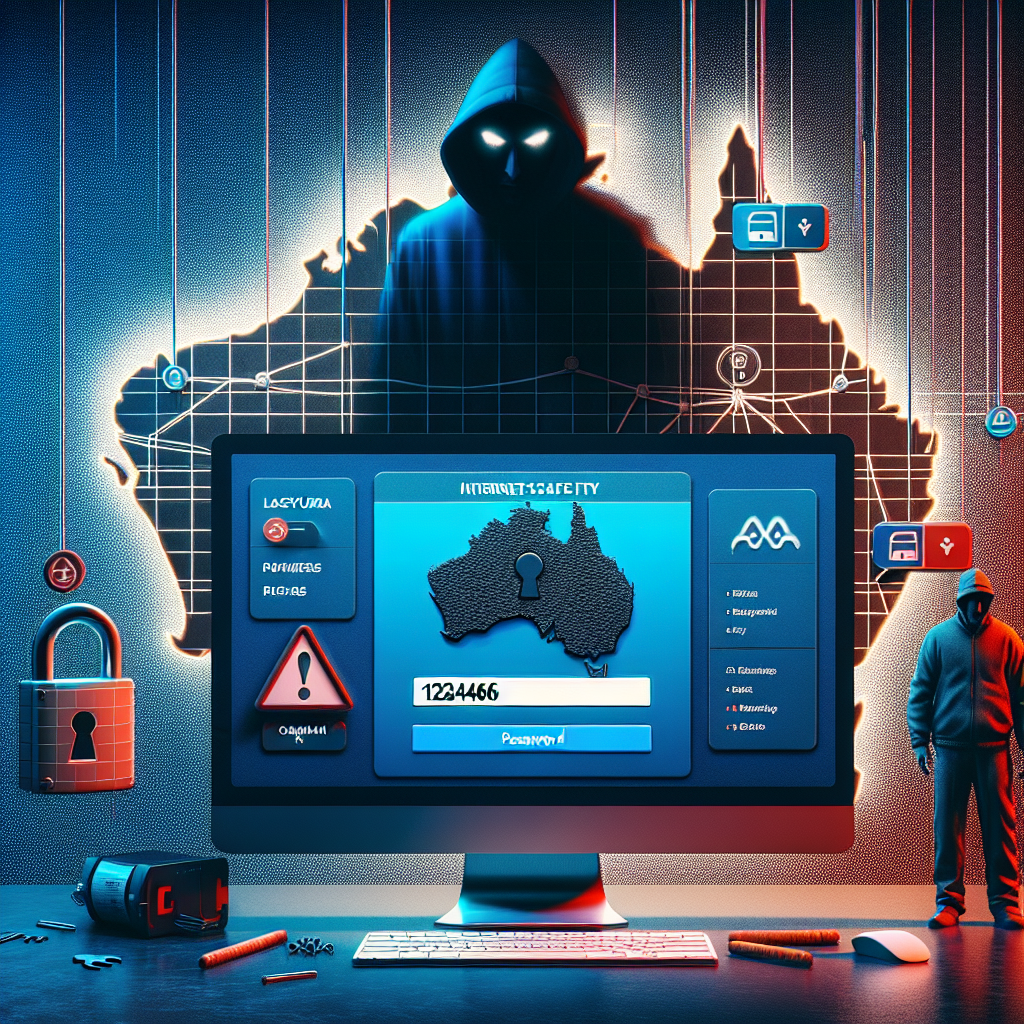In today’s digital world, staying safe online should be second nature. But worryingly, fewer Australians are taking basic cybersecurity precautions, putting themselves at greater risk of cyber threats. From weak passwords to ignoring software updates, these small lapses can lead to big problems.
So, why are people neglecting online safety? And what simple steps can you take to protect yourself? Let’s break it down.
Are We Becoming Too Comfortable Online?
Cybersecurity often feels like an invisible concern—until something goes wrong. Many people assume that hackers will never target them, but in reality, cybercriminals don’t discriminate. They’re always looking for easy targets, and every unsecured account is an opportunity for them.
A recent study shows that fewer Australians are taking essential security measures like updating passwords, enabling multi-factor authentication (MFA), or being cautious with suspicious emails. This relaxed attitude significantly increases the risk of data breaches, identity theft, and financial fraud.
Common Cybersecurity Mistakes People Make
Most cyber attacks don’t happen because of sophisticated hacking techniques. Instead, they exploit simple mistakes that could easily be avoided. Here are some of the most common ones:
- Reusing the same password: If one account gets hacked, all linked accounts are at risk.
- Ignoring software updates: Updates patch security flaws that hackers can easily exploit.
- Not using multi-factor authentication (MFA): MFA adds an extra layer of protection, making it harder for attackers to access accounts.
- Clicking on suspicious links: Phishing scams trick people into giving away personal information.
- Sharing too much personal information: The more you share online, the easier it is for cybercriminals to impersonate you.
Why Are Fewer People Taking Cybersecurity Seriously?
There are several reasons why people neglect their online security:
- Convenience over safety: Nobody likes dealing with passwords, alerts, and extra security steps. It’s easier to stick with what feels quick and simple.
- Lack of awareness: Many people don’t realize how vulnerable they are until it’s too late.
- Overconfidence: Some assume they won’t become a target or that their accounts aren’t worth hacking.
- Forgetfulness: Life is busy, and cybersecurity isn’t always at the top of the priority list.
Simple Steps to Protect Yourself Online
The good news? Staying safe online doesn’t have to be complicated. Just a few simple habits can significantly improve your security.
1. Strengthen Your Passwords
Think of your passwords as the locks on your door. The stronger they are, the harder it is for hackers to break in.
- Use a mix of uppercase and lowercase letters, numbers, and symbols.
- Make passwords at least 12-16 characters long.
- Avoid using common words or personal details (like your birthday).
- Use a password manager to generate and store complex passwords.
2. Enable Multi-Factor Authentication (MFA)
Even if a hacker gets your password, they’ll need a second verification step—like a text message or an authentication app—to access your account. Enabling MFA adds a reliable layer of security.
3. Be Cautious with Links and Emails
Phishing scams trick you into handing over personal information by pretending to be from trusted companies. Here’s how to stay safe:
- Don’t click on links in unexpected emails or messages.
- Check the sender’s email address for slight misspellings.
- If in doubt, go directly to the company’s website instead of clicking a link.
4. Update Your Software and Devices
Those annoying update notifications? They’re actually protecting you. Software updates fix vulnerabilities that attackers exploit. Make it a habit to install updates as soon as they’re available.
5. Limit What You Share Online
Social media makes it easy to overshare, but be mindful of what you post. Cybercriminals can use details like your birthday, pet’s name, or location to guess passwords or impersonate you.
6. Use a VPN on Public Wi-Fi
Free Wi-Fi at cafes and airports is convenient, but it’s also unsecured. A virtual private network (VPN) encrypts your data, making it harder for hackers to intercept your information.
Cybersecurity Is Everyone’s Responsibility
Keeping your online accounts secure isn’t just about protecting your own information—it also helps prevent cybercriminals from using your accounts to target others.
Think of cybersecurity like locking your front door. You wouldn’t leave it wide open just because you don’t expect a break-in, right? The same logic applies online. Small steps today can prevent big headaches tomorrow.
Final Thoughts: Make Cybersecurity a Habit
Online threats are constantly evolving, but the core of cybersecurity remains simple: Stay alert, use strong passwords, and be cautious with your personal information. You don’t need to be a tech expert to stay safe—you just need to practice good habits.
So, when was the last time you updated your passwords or enabled MFA? If you’ve been putting it off, now’s the time to take action. A few minutes today could save you hours (or even money) down the line.
Stay safe out there!
“`
